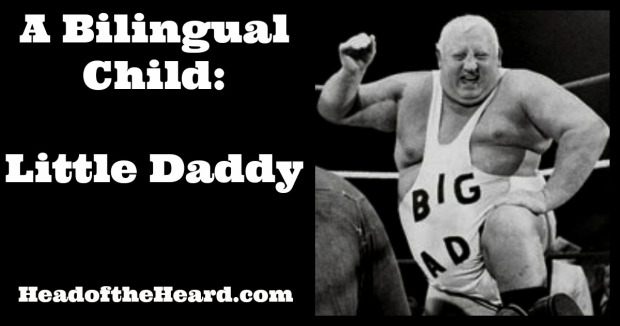Brazil may be a huge country, but Brazilians love making everyone and everything in it as small as possible. One thing I noticed early on when learning Portuguese was the prevalence of the suffix –inho or –inha. They use it on the end of words to form the diminutive, and they use it all the time.
This means that a ‘coffee’ (café) becomes ‘cafezinho’, ‘grande’ (big) can be ‘a little bit big’ (grandinho), and ‘never’ (nunca) can be ‘never, ever’ when it is used as ‘nuncinha‘.
Even the word little itself ‘pequeno’ can be made even littler by saying ‘pequeninho’.
However, a small t-shirt (camisa) is not a camisnha because camisinha means condom.
This little suffix be used to mean something is actually small but not exclusively so. It can also be used to show familiarity, friendliness or that something is just so damned cute.
The basic rule is that you add –inho to masculine words and –inha to feminine words. However, if the word ends in the letter ‘z’, or vowel other than ‘a’ or ‘or’ then we have wither –zinho or –zinha, depending on the gender of the word.
English uses the diminutive a lot less than Portuguese. Footballers and children are fond of adding a ‘y’ to the end of names to sound familiar, so that you will hear them referring to their teammates as ‘Scholesy’ and ‘Giggsy’. In terms of more formal English, we have imported the suffix -ette from French so that we get words like ‘kitchenette’ and ‘cigarette’.
There are also different varieties of English around the world that have their own diminutive forms, like my dad shows his Irish roots by adding -een to the end of various words, for example, ‘Would you like a cuppeen of tea?’ is a common expression in our house.
In general, though, we don’t have a common diminutive form, and when we do use it we are nothing like as proficient as Portuguese speakers for employing it.
An advert for Coke in Ecuador makes fun of the Brazilian predilection for diminutives
Diminutives in Action
Mr T has picked up on this in his Portuguese and is enjoying playing with words and liberally adding –inho to them. He was begging me to let him watch Batman the other day and, because we have a rule that he can only watch at night the answer was no. But he is nothing if not persistent and so asked if we could watch Batmanzinho, or just a little batman.
Mr T couldn’t tell you the rule about when to say –inho or –zinho, but he has shown us that he is aware of it. He did this when playing with the English word ‘daddy’. First of all he called me ‘daddyinho’, but he knew this was wrong almost as soon as it came out of his mouth. A few seconds later he repeated himself, but this time said ‘daddyzinho’.
I liked this because it shows he is being creative with his language, playing with it to get new words and meanings. He also did it with a look on his face to suggest he knew what he was doing was a joke at my expense and that he also knew that he shouldn’t really be doing this in English.
The only downside is that I am little daddy and not big daddy. But at least my name isn’t Shirley.
More on diminutives in Portuguese
Portuguêse é Massa (Portuguese for Foreigners)
Image
Big Daddy by Paul Townsend CC BY-NC 2.0





